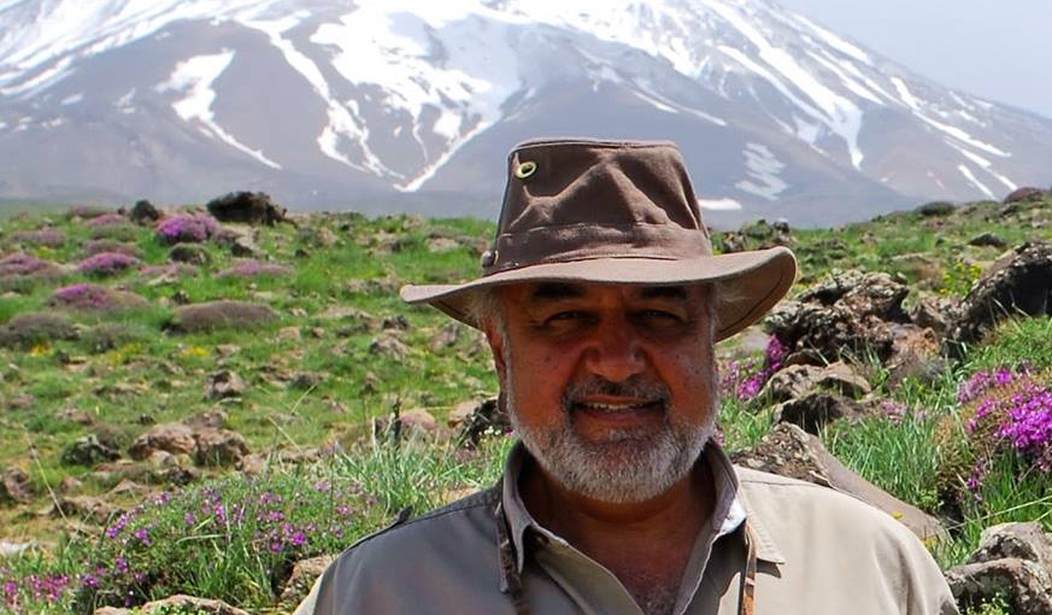An American conservationist whose group was using cameras to monitor the Asiatic cheetah and other species could face the death penalty as Iran claims the wildlife workers were spying on the country’s missile program.
Jane Goodall and other renowned scientists, conservationists and scholars have reached out to Ayatollah Ali Khamenei on behalf of their colleagues, explaining the wildlife research and offering to act as expert witnesses.
Morad Tahbaz was among several current and former staffers of the Persian Heritage Wildlife Foundation arrested on Jan. 24 and 25; the others are Houman Jowkar, Taher Ghadirian, Sepideh Kashani, Niloufar Bayani, Amir Hossein Khaleghi, Sam Rajabi and Abdolreza Kouhpayeh. The foundation’s Canadian chairman, Kavous Seyed-Emami, was also arrested; he died two weeks later in Tehran’s notorious Evin Prison and his widow has been repeatedly detained and interrogated since.
According to a flyer for an address he gave at Yale, Tahbaz co-founded the Persian Wildlife Heritage Foundation in Iran and Persian Wildlife Foundation in the United States to help augment conservation hampered by small budgets and meager staff allocated by the Iranian government.
“There is a constant struggle between local communities’ desired use versus sustainable use of their natural resources. The Persian Wildlife Foundation focuses on exactly this issue in conjunction with helping some of the threatened fauna from being further diminished or even going extinct,” says the group’s website, listing their activities including research, on-the-ground conservation efforts, educational materials, and “organizing scientific exchanges between Iranian and international conservation specialists.”
Tahbaz graduated from Colgate University in 1977 and got his MBA from Columbia University in 1983; he discovered his passion for nature after subscribing to National Geographic at age 9. He’s listed as founder and partner of two U.S. investment firms. The Yale bio said he’s a life member of the Wild Sheep Foundation, the Rocky Mountain Elk Foundation, and the Cat Specialist Group of the International Union for Conservation of Nature (IUCN).
According to an online research bio, he conducts research in climatology, remote sensing and hydrology, and his group worked on a project for conservation of the Asiatic cheetah. His Instagram account includes photos of his home in Weston, Conn., two black labs at home, travels in Costa Rica and Madrid, and shots of nature in Iran — including close-up photos of big cats and ibex caught on trap cameras set up by his foundation in Khar Turan National Park.
On Nov. 28, according to the Center for Human Rights in Iran, Iran Prosecutor General Mohammad Javad Montazeri claimed that “for some years, the U.S. and Israel have been infiltrating sensitive and vital locations in the country through their agents in the environmental field.” He added that the environmentalists’ cameras were installed “so they could supposedly watch some animal.”
The attorney representing Rajabi told the human-rights groups that Tahbaz, Ghadirian, Kashani and Bayani had been charged with “corruption on earth,” a charge that can carry the death penalty.
The letter to the ayatollah from Goodall and the primatologist’s colleagues noted that many of them have conducted research in Iran in the past. “We understand these charges are in connection to conservationists using tools of science, such as camera traps, which are suspected of having been used to undermine the national security interests of Iran,” they wrote. “Camera traps are now a standard tool for wildlife monitoring, being deployed for that purpose in many regions around the world. Camera traps deliver invaluable, first-hand evidence on the presence of endangered species when they approach within a few meters. They are an essential tool in providing a critical basis for both science and conservation strategies to save species from extinction.”
“All of the conservationists in question have dedicated their lives to the conservation of wildlife in Iran, including the critically endangered Asiatic cheetah,” the letter continues. “Throughout their careers, they have always promoted the image of Iran in the international conservation community and applauded its efforts to conserve wildlife while facing many other challenges. They have also inspired young biologists and conservationists in Iran to follow in their footsteps. To the best of our knowledge, our colleagues have worked and carried themselves with the highest moral integrity.”
“We are convinced that their work and research had no second means or objectives. Given the general international political backdrop and sometimes tense relationships between countries, we fully understand the current concerns. We are horrified about the thought that the neutral field of conservation could ever be used to pursue political objectives. We as a community strongly condemn that, and we are convinced our colleagues had no such part.”
They stressed to the ayatollah that they “stand by the innocence of the conservationists in question and urge you to call for a fair and just evaluation of the evidence, access to lawyers of their choice and a transparent trial.”
“Some of us are ready to provide evidence and witness testimony upon request,” they added.
The letter was signed by nine distinguished conservationists, 92 professors, 145 researchers, and 123 conservation practitioners.









Join the conversation as a VIP Member